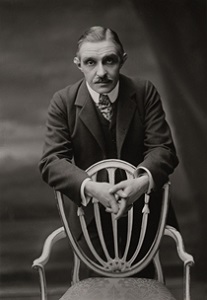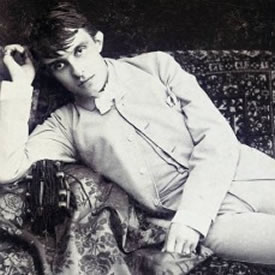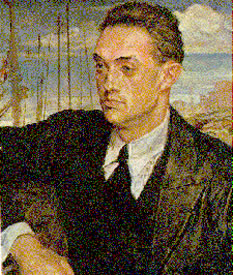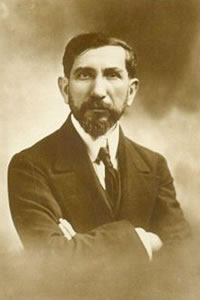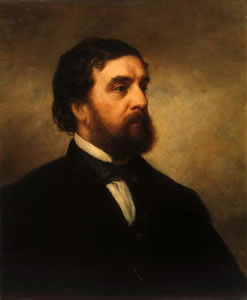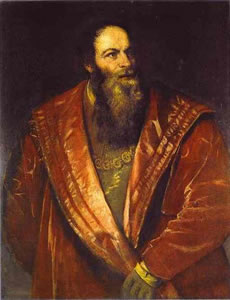De Franse schrijver Emmanuel Bove (eig. Emmanuel Bobovnikoff) werd geboren op 20 april 1898 in Parijs. Zie ook alle tags voor Emmanuel Bove op dit blog.
Uit: Un célibataire
« Depuis le déjeuner, Albert Guittard était mécontent de lui. Il s’était pourtant levé de bonne humeur. Ne devait-il pas rendre visite, vers les cinq heures, à monsieur et madame Penner ? Mais il s’était passé un petit événement désagréable que nous rappellerons brièvement afin d’éclairer le caractère de cet homme étrange. Il venait de sortir de table et s’apprêtait à faire la sieste lorsque la sonnette de la grille du jardin retentit. Bien qu’il approchât de la cinquantaine et qu’il fût célibataire, M. Guittard n’était pas vieux garçon au point de ne pouvoir supporter d’être dérangé. Il attendit donc, avant de gagner son bureau où, sur un divan, il avait l’habitude de dormir jusqu’à quatre heures, d’être fixé sur cette visite. Au bout d’une minute à peine, la femme de chambre vint lui annoncer qu’un certain M. Bourrette était au salon.
— Bourrette ? demanda Guittard à qui ce nom ne disait rien.
— C’est cela, monsieur.
— Bourrette ? Vous êtes sûre d’avoir entendu ce nom ?
— Bourrette, certainement, Bourrette… monsieur.
— Ce monsieur Bourrette ne vous a pas dit ce qu’il voulait ni de la part de qui il venait ?
— Je ne le lui ai pas demandé, monsieur.
— Eh bien ! allez le lui demander. Je ne le connais pas et je n’ai aucune raison de le recevoir chez moi. Comment est-il ?
— C’est un monsieur d’un certain âge.
— Enfin, de quoi a-t-il Pair ?
— Mais je ne sais pas, monsieur. Il a peut-être l’air d’un homme comme tout le monde. n a une serviette sous le bras. — Quelle importance cela a-t-il qu’il ait une serviette sous le bras ? Demandez-lui d’abord sa carte et demandez-lui qui il est. Et vous pouvez lui dire aussi, de ma part, que lorsqu’on se présente chez des gens qu’on ne connaît pas, la politesse commande d’annoncer l’objet de sa visite. Dites-le-lui de ma part. Cela lui servira de leçon. A peine la femme de chambre eut-elle disparu qu’il appréhenda qu’elle ne répétât à l’innocent visiteur les paroles qu’il avait prononcées sans autre raison que celle de soulager une mauvaise humeur qu’il n’avait même pas, mais que, par caprice, il lui plaisait de manifester. »
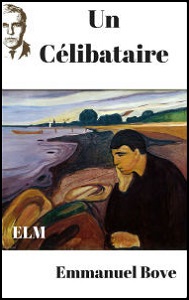
Emmanuel Bove (20 april 1898 – 13 juli 1945)
Cover
De Franse schrijver Henry de Montherlant werd geboren op 20 (en niet op 21) april 1896 in Parijs Zie ook alle tags voor Henry de Montherlant op dit blog.
Uit: Les Célibataires
« Ce soir froid de février 1924, sur les sept heures, un homme paraissant la soixantaine bien sonnée, avec une barbe inculte et d’un gris douteux, était planté sur une patte de-vant une boutique de la nie de la Glacière, non loin du boulevard Arago, et lisait le journal à la lumière de la devanture, en s’ai-dant d’une grande loupe rectangulaire de philatéliste. Il était vêtu d’une houppelande noire usagée, qui lui descendait jusqu’à mi-jambes, et coiffé d’une casquette sombre, du modèle des casquettes mises en vente vers 1885 : avec une sous-mentonnière à deux ailes, actuellement relevées de chaque côté sur le dessus. Quelqu’un qui l’aurait examiné de près aurait vu que chaque détail de son accoutrement était « comme de personne ». Sa casquette était démodée de trente ans; sa houppelande était retenue, au col, par deux épingles de nourrice accrochées l’une à l’autre et formant chaînette; le col tenant de sa chemise blanche empesée était effrangé comme de la dentelle, mettant à nu le tissu intérieur, et sa cravate était moins une cra-vate qu’une corde vaguement recouverte de place en place d’une étoffe noire passée; son pantalon flottant descendait bien de quinze centimètres plus bas que ce que les tailleurs appellent « la fourche »; le lacet d’une de ses bottines (des bottines énormes) était un bout de ficelle qu’on avait eu l’intention de peindre en noir avec de l’encre. S’il avait poussé plus loin son indiscrétion, l’observateur aurait remarqué que c’était de même une forte ficelle qui tenait lieu de toute ceinture à notre personnage, et que celui-ci ne portait pas de caleçon. Ses vetements, à l’intérieur, étaient tout bardés d’épingles de nourrice, comme ceux d’un Arabe. Il avait à chaque pied deux chaussettes de laine super-posées (d’où sans doute la largeur des godil-lots). Retournant les poches, voici ce que l’ob-servateur y eût trouvé de remarquable : un vieux croûton de pain, deux morceaux de sucre, un mélange sordide de brins de tabac noir et de miettes solidifiées de vieille mie de pain, et une montre en or massif, qui l’eût arrêté. C’était une montre ancienne, plate, respirant par toute sa personne la beauté de la chose coûteuse et parfaite; le bottier en était littéralement recouvert par le yataras que faisait un blason très historie (lion, flammes, toute la boutique) et couronné d’une couronne de baron. Enfin, finissant sa visite par le portefeuille (un portefeuille en loques, et, à l’emplacement du crayon, sans crayon), l’observateur y eût rencontré d’un côté une centaine de francs, de l’autre une carte de réclame de la maison « Jenny, fards de théâtre, etc… », et trois cartes de visite qui devaient bien être là depuis dix ans, car elles étaient jaunies au point d’en être devenues presque brunes sur leurs bords. Elles por-taient, vulgairement imprimée, la suscrip-tion : Élie de Coëtquidan, .11, rue de Lisbonne. Et, par une singularité qui ne se voit plus qu’en province et encore, peut-être, seule-ment en Bretagne, la suscription était sur-montée d’une couronne de baron. »
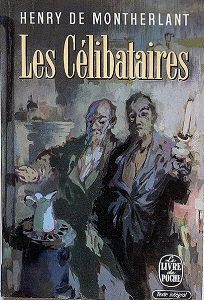
Henry de Montherlant (20 april 1896 – 21 september 1972)
Cover
De Franse schrijver Charles Maurras werd geboren op 20 april 1868 in Martigues Zie ook alle tags voor Charles Maurras op dit blog.
Uit: Le Chemin de Paradis
« Dans la nuit du cinquième jour, comme il admirait la lenteur des esclaves à lui revenir et qu’il se demandait si ces pauvres amis ne l’avaient oublié à la ville, il vit du côté du midi, sur la mer, et bien que le soleil se fût couché depuis longtemps, une faible lumière ; elle avait le teint de la rose et tranchait doucement sur les feux argentés qui descendaient du clair de lune. Las de la contempler, Euphorion ferma les yeux.
Il était adossé à la muraille du rocher, défendu par la treille contre l’intempérie, et les embûches des étoiles. On l’eût pris pour un homme assis qui regardait le ciel. Mais il dormait et ses fontaines murmuraient dans la demi-ombre.
La couleur blonde de la mer dura jusqu’au matin et, moins instruit des lois du monde, le vieillard, au réveil, eût pu se demander si l’aube, ce jour-là, n’était point levée au midi. Il descendit parmi ses fleurs. Mais son inquiétude était telle qu’il ne voulut point les toucher. Il erra sous les arbres et craignit de flétrir les beaux fruits pendus à leurs branches. Puis il s’allongea sur la terre et, devant les concombres et les autres légumes, s’adonna aux œuvres plus viles qui, ne voulant aucun effort, le laissaient à sa rêverie.
Vers le milieu du jour, comme il achevait de tresser ensemble pour sa provision de l’hiver une douzaine d’oignons roux, des pas pressés sonnèrent au bas de la montée.
Euphorion cria :
« Est-ce vous, Syron, Icétas ?
— C’est moi, dit une voix prochaine. »
Et Syron apparut. Icétas ne le suivait point. Le vieillard, effrayé, n’osait demander des nouvelles, car les mains, la poitrine, les cheveux de Syron étaient noirs de fumée. Mais une flamme singulière éclairait son regard.
« Maître, fit-il d’abord, vous lisez dans la destinée. Notre Icétas a eu le sort du jeune Hylas.
— Quoi, Icétas a donc péri ?
— Si c’est périr que de se rompre sous l’effort de la volupté, tout Sybaris et tout son peuple ont péri de la main des Grâces.
— Vraiment, Syron, le peuple entier de Sybaris ? »
Le serviteur montra du doigt la tache pourpre de la mer que le puissant soleil n’avait point effacée et qui s’accroissait au contraire. Les flots semblaient de sang.”
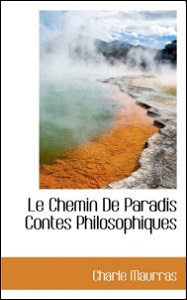
Charles Maurras (20 april 1868 – 16 november 1952)
Cover
De Deense schrijver Herman Bang werd geboren op 20 april 1857 in Asserballe. Zie ook alle tags voor Herman Bang op dit blog.
Uit: Michael (Vertaald door Julia Koppel)
„Der Meister öffnete die Tür zum Balkon und trat hinaus. Seine Augen waren leicht zusammengekniffen, entweder weil sie das Werk, das seine Gedanken endlich verlassen wollten, noch zu sehen sich bemühten, oder vielleicht nur, weil sie vom Tageslicht geblendet wurden.
Er setzte sich in den gewohnten Stuhl. Sein mächtiger Bart, dessen weiße Streifen wie seltsame Wellen durch das Schwarz rannen, reichte fast bis zum Geländer hinab, und er drückte nach beendetem Tagewerk seine Hände einen Augenblick gegen das Eisen des Gitters, als stemme er sie gegen einen unerschütterlichen Felsen.
Michael saß wie gewöhnlich, das schlanke Kinn gegen die Balustrade gestützt, und starrte in die Luft. Einige Skizzen lagen in seinem Schoß, als wären sie vergessen.
Der Diener erschien in der Tür mit der Post und Visitenkarten, die er dem Meister auf einem Tablett reichte. Der Meister las die Karten und ließ sie auf das Tablett zurückgleiten, als hätte keine von ihnen einen Namen getragen. Er behielt eine einzige, die er oben in seine Weste hineinschob.
Dann griff er nach den Zeitungen. Die meisten waren unter Kreuzband, mit blau eingerahmten Spalten.
»Was schreiben sie?« fragte Michael und hob den Kopf.
»Von der Ausstellung in Melbourne.«
»Was?« fragte Michael und sah Claude Zoret ins Gesicht.
»Was sie immer schreiben,« sagte der Meister, der die Lippen nur ganz wenig öffnete, wenn er sprach, und schob die Zeitungen beiseite.“
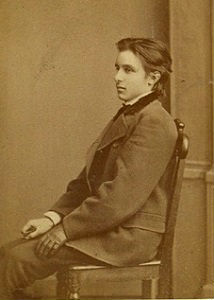
Herman Bang (20 april 1857 – 19 januari 1912)
De Amerikaanse dichter, schrijver, essayist en criticus Henry Theodore Tuckerman werd geboren op 20 april 1813 in Boston, Massachusetts. Zie ook alle tags voor Henry Tuckerman op dit blog.
Uit: The Collector
“It was one of the conclusions arrived at by Adelung, that the same language would not maintain itself beyond the limit of a hundred and fifty thousand square miles; but by means of books the limits of the world alone are the limits within which language and the enjoyment of it can be confined. Letters waft a sigh from Indus to the Pole, and printed volumes carry thoughts that breathe and words that burn over the great oceans from one quarter of the world to another.
Such a volume is the one now in the hand of the reader. It is freighted with a dozen pleasant papers or essays, the subjects of which are not confined to America exclusively. They furnish us with text, and afford opportunity for illustrative comment.
Profiting by this opportunity, let me commence by observing, in reference to the opening essay, that the inns and taverns of London underwent a great change after the death of James the First. The rights of honest topers were suppressed by his son King Charles, who, for the poor[Pg 2] fee of an annual three pounds sterling, granted licences to tavern-keepers to sell wines at what prices they pleased, in spite of all statutes to the contrary! You may fancy how flushed the face of a thirsty Cockney might become, who, on putting down his eightpence for a quart of claret, was told by Francis, the drawer, that the price was a full quarter noble, or ‘one-and-eightpence’!
Lord Goring, who issued these licences, pocketed a respectable amount of fees in return. By statute, London had authority only for the establishment of forty taverns. But what did roystering George Goring care for statute, since the king gave him licence to ride over it? Taverns multiplied accordingly, not only in the city but in those ‘suburbs,’ as they were once called, fragrant Drury Lane and refined ‘Convent Garden.’ With competition came lower prices, however, and the throats of the Londoners were refreshed, while their purses were not so speedily lightened.
Jolly places they became again; but when they not only increased all over the town, but took to ‘victualling,’ as it was termed, as well as ‘liquoring,’ the authorities began to inquire into the matter. With the claret that was drunk, a corresponding amount of venison was eaten. At the same time the king’s bucks began to disappear, and suspicion arose that gentlemen in taverns dined off his sacred majesty’s deer! A watch was set to prevent such felonious fare being carried into London from any of the royal parks, chases, or forests. Still haunches smoked on the boards of those naughty victualling taverns, and haughty Cockneys, ‘greatly daring, dined’! The stolen bucks were smuggled in over Bow Bridge; and not till that passage was occupied by representatives of legal[Pg 3] authority did the venison intended for the court cease to find its way into the city.”
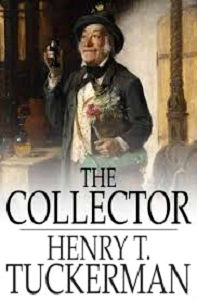
Henry Tuckerman (20 april 1813 – 17 december 1871)
Cover
De Franse dichter Aloysius Bertrand werd geboren op 20 april 1807 in Ceva, Piemont, Italië. Zie ook alle tags voor Aloysius Bertrand op dit blog.
Le bibliophile
Ce n’était pas quelque tableau de l’école flamande, un
David-Téniers, un Breughel d’Enfer, enfumé à n’y pas
voir le diable.
C’était un manuscrit rongé des rats par les bords, d’une
écriture toute enchevêtrée, et d’une encre bleue et rouge.
– » Je soupçonne l’auteur, dit le Bibliophile, d’avoir
écu vers la fin du règne de Louis douze, ce roi de pater-
nelle et plantureuse mémoire. »
» Oui, continua-t-il d’un air grave et méditatif, oui,
il aura été clerc dans la maison des sires de Chateau-
vieux. »
Ici, il feuilleta un énorme in-folio ayant pour titre le
Nobiliaire de France, dans lequel il ne trouva mentionnés
que les sires de Chateauneuf.
– » N’importe ! dit-il un peu confus, Chateauneuf et
Chateauvieux ne sont qu’un même château. Aussi bien il
est temps de débaptiser le Pont-Neuf. «
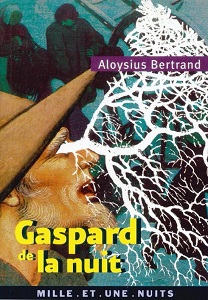
Aloysius Bertrand (20 april 1807 – 29 april 1841)
Cover
De Italiaanse schrijver Pietro Aretino werd geboren in Arezzo op 20 april 1492. Zie ook alle tags voor Pietro Aretino op dit blog.
Uit: Dialogues (Vertaald door Raymond Rosenthal)
“ANTONIA Why?
NANNA Because the reverend father summoned the three friars and leaning on the shoulder of one of them, a tall, soft-skinned rascal who had shot up prematurely, he ordered the others to take his little sparrow, which was resting quietly, out of its nest. Then the most adept and attractive young fellow of the bunch cradled the General’s songster in the palm of his hand and began stroking its back, as one strokes the tail of a cat which first purrs, then pants, and soon cannot keep still. The sparrow lifted its crest, and then the doughty General grabbed hold of the youngest, prettiest nun, threw her tunic over her head, and made her rest her forehead against the back of the bed. Then, deliberately prying open with his fingers the leaves of her ass-hole Missal and wholly rapt his thoughts, he contemplated her crotch, whose form was neither close to bone with leanness nor puffed out with fat, but something in between — rounded, quivering, glistening like a piece of ivory that seems instinct with life.
Those tiny dimples one sees on pretty women’s chins and cheeks could also be seen on her dainty buttocks, whose softness was softer than that of a mill mouse born and raised in flour, and that nuns limbs were all so smooth that a hand placed gently on her loins would have slid down her leg as quickly as a foot slides on ice, and hair no more dared grow on her than it would on an egg.
ANTONIA So the father General consumed his day in contemplation, eh?”
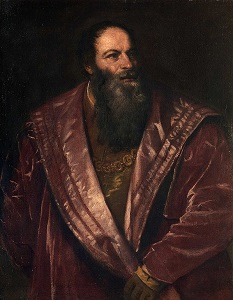
Pietro Aretino (20 april 1492 – 21 oktober 1556)
Portret door Titiaan, ca. 1545
De Engelse dichteres en schrijfster Dinah Maria Craik werd geboren op 20 april 1826 in Stoke-on-Trent. Zie ook alle tags voor Dinah Craik op dit blog.
Sunday Morning Bells
From the near city comes the clang of bells:
Their hundred jarring diverse tones combine
In one faint misty harmony, as fine
As the soft note yon winter robin swells.–
What if to Thee in Thine Infinity
These multiform and many-colored creeds
Seem but the robe man wraps as masquers’ weeds
Round the one living truth Thou givest him–Thee?
What if these varied forms that worship prove,
Being heart-worship, reach Thy perfect ear
But as a monotone, complete and clear,
Of which the music is, through Christ’s name, Love?
Forever rising in sublime increase
To ‘Glory in the Highest,–on earth peace?’
Green Things Growing
O the green things growing, the green things growing,
The faint sweet smell of the green things growing!
I should like to live, whether I smile or grieve,
Just to watch the happy life of my green things growing.
O the fluttering and the pattering of those green things growing!
How they talk each to each, when none of us are knowing;
In the wonderful white of the weird moonlight
Or the dim dreamy dawn when the cocks are crowing.
I love, I love them so – my green things growing!
And I think that they love me, without false showing;
For by many a tender touch, they comfort me so much,
With the soft mute comfort of green things growing.
And in the rich store of their blossoms glowing
Ten for one I take they’re on me bestowing:
Oh, I should like to see, if God’s will it may be,
Many, many a summer of my green things growing!
But if I must be gathered for the angel’s sowing,
Sleep out of sight awhile, like the green things growing,
Though dust to dust return, I think I’ll scarcely mourn,
If I may change into green things growing.
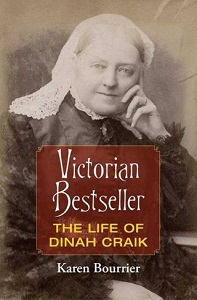
Dinah Craik (20 april 1826 – 12 oktober 1887)
Cover biografie

